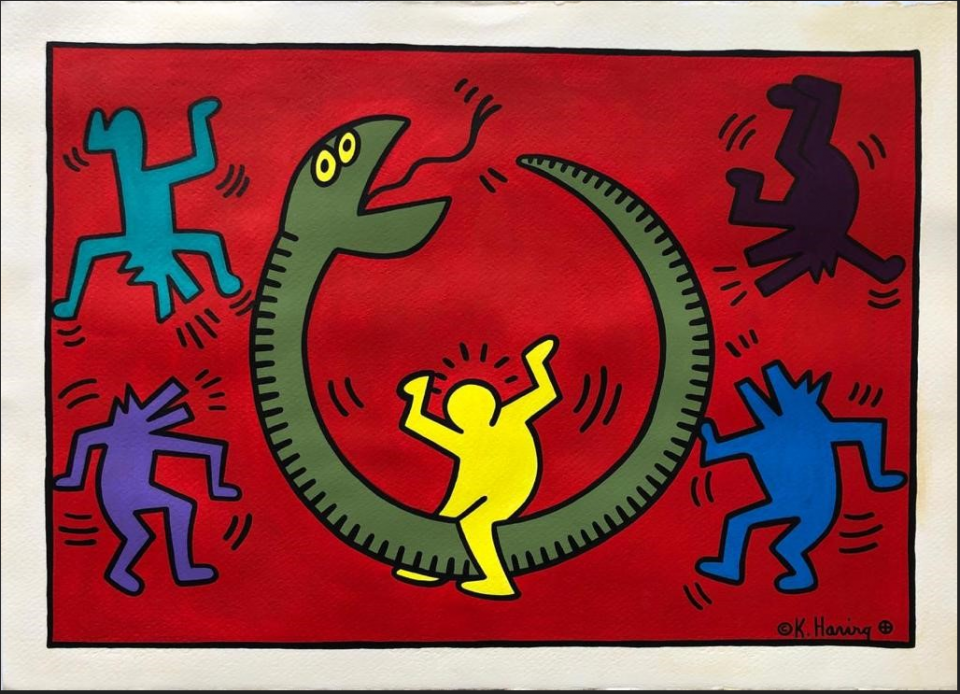
Authorities in New York have arrested a 49-year-old Mexican man accused of selling fake artworks he claimed were by Jean-Michel Basquiat and Keith Haring.
Angel Pereda, also known as Angel Luis Pereda Eguiluz, has been charged with wire fraud and faces up to 20 years in prison for offenses carried out in 2020 and 2021, including approaching New York auction houses to sell artworks purportedly by Haring and consigning a fake Basquiat for sale. The news was first reported by the New York Times.
“If real, such works would be worth millions,” Manhattan U.S. Attorney Audrey Strauss said in a statement. “The alleged fakes have little or no value, except potentially as evidence of the alleged crime.”
The FBI got wind of the forgery scheme after Pereda attempted to sell the fake artworks at two different New York auction houses, according to a criminal complaint filed in late June by FBI agent Christopher McKeogh that was unsealed on Friday.
Angel Pereda has been arrested on a charge of wire fraud, accused of selling fake Keith Haring and Jean-Michel Basquiat works like this Haring forgery. Photo courtesy of the the Southern District of New York.
The Keith Haring Foundation helped unravel the scheme, having determined that a pair of artworks offered to two different auction houses by two different sellers were both not by the artist’s hand. The provenance paperwork for one piece, a yellow vase, listed the “Pereda Family, Mexico,” while the other work, a painting, was said to be from Pereda’s collection.
The sellers had wired thousands of dollars to an account Pereda held in Mexico, with bank records indicating the funds were for “purchasing a painting.”
One of the sellers began cooperating with law enforcement, and they prepared a sting. The seller called Pereda, saying that a supposed Basquiat painting, Glory Boys Kingdom, had been found to be fake, partly because of its suspicious provenance records.
Angel Pereda has been arrested on a charge of wire fraud, accused of selling fake Keith Haring and Jean-Michel Basquiat works like this forgery said to be a collaboration by the two artists. Photo courtesy of the the Southern District of New York.
Acting at the instruction of law enforcement, the seller told Pereda that if he could provide new provenance papers, they would be able to sell the painting for over $6 million. Pereda then sent a falsified document for the painting to the seller on WhatsApp.
Pereda could not be reached for comment, and the FBI declined to comment further on the case.
“Mr. Pereda conned art buyers, hoping his victims wouldn’t see the difference between real art and a forgery,” FBI Assistant Director William F. Sweeney Jr. said in a statement. “He used their trust to his advantage by passing off worthless pieces as priceless works of art.”